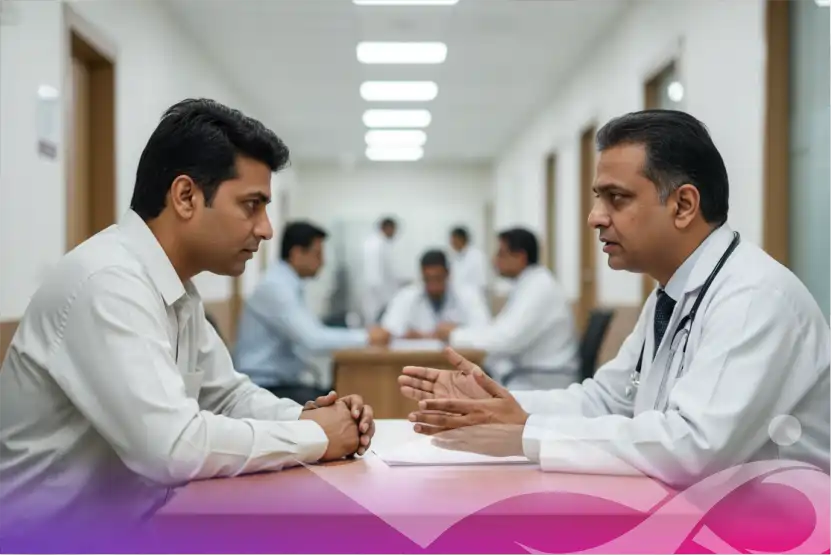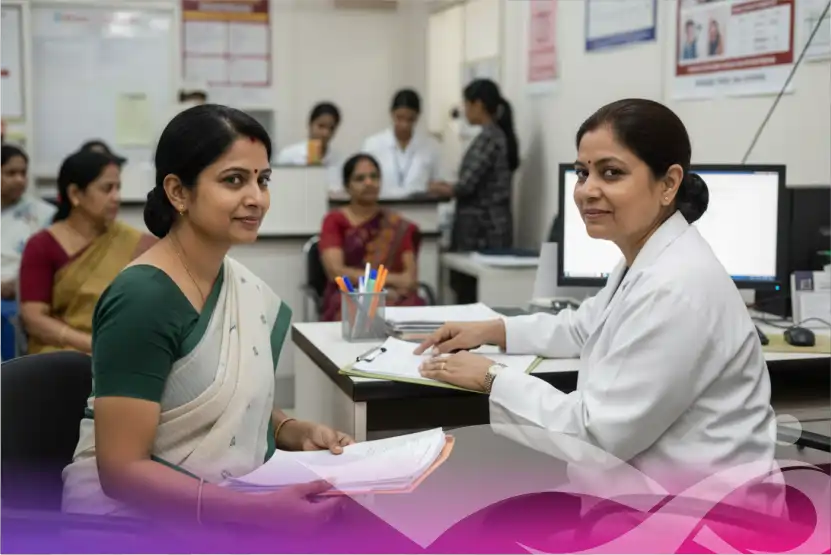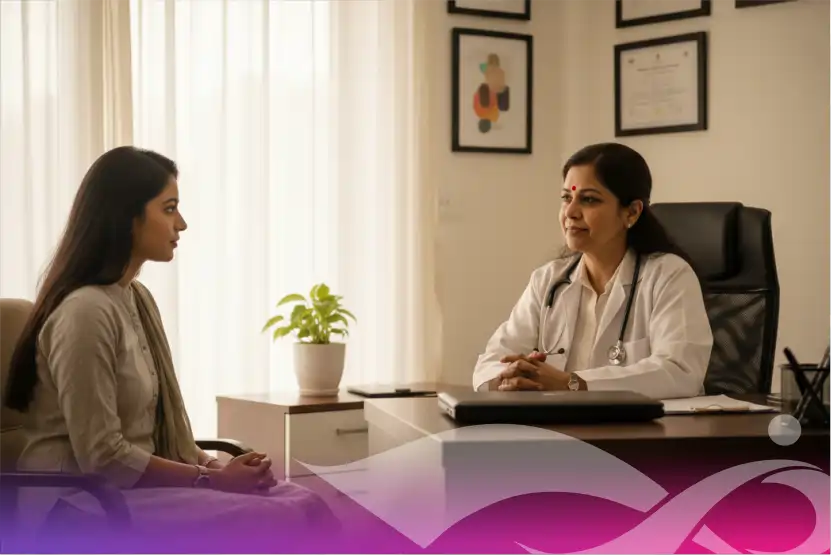Lymphoma, a type of cancer, starts in lymphocytes, which are white blood cells that are important for the body's immune system. These cells are found in the lymphatic system, which is a huge network of vessels, nodes, and organs like the spleen and bone marrow. They help fight infection. When lymphocytes grow out of control and form tumours, often in the lymph nodes, lymphoma can happen. Understanding the types of lymphoma and their symptoms is vital for timely diagnosis and effective management. At the International Oncology Cancer Institute (IOCI), we aim to provide clarity on these complex blood cancers.
Understanding Lymphoma: Key Differences, Shared Symptoms, and When to Seek Help
Hodgkin lymphoma (HL) and non-Hodgkin lymphoma (NHL) are the two main types of lymphoma. These types are different because the cancerous cells have different characteristics. Hodgkin lymphoma has a special type of abnormal cell called the Reed-Sternberg cell. It usually moves from one set of lymph nodes to another in a set order. Most lymphoma cases are classified as non-Hodgkin lymphoma, which is a much larger group of lymphomas that do not have Reed-Sternberg cells. There are more than 70 different types of non-Hodgkin lymphoma. These types can be divided into aggressive (fast-growing) and indolent (slow-growing) forms, as well as whether they come from B-cells or T-cells. Some types are mantle cell lymphoma, follicular lymphoma, and diffuse large B-cell lymphoma (DLBCL).
Even though Hodgkin and non-Hodgkin lymphomas are different, they often have the same symptoms. Swelling of the lymph nodes that doesn't hurt is the most common sign. It usually happens in the neck, armpit, or groin. There are many harmless reasons for swollen lymph nodes, like infections. However, if the swelling doesn't go down after a few days, you should see a doctor. Some other systemic symptoms, called "B symptoms," are fevers that come and go for no apparent reason, sweating that soaks clothes and bedding, and losing more than 10% of your body weight over six months for no apparent reason. You should take care of these B symptoms right away because they could mean you have a more serious illness. If the lymph nodes are swollen, other symptoms may include itching, chronic fatigue, or even pain in the abdomen or bones. This is because the lymphoma is in a different part of the body.
Diagnosing and Treating Lymphoma: The Power of Early Detection and Comprehensive Care
To find out if someone has lymphoma, they need a full physical exam, blood tests, and often imaging scans. However, pathologists use a biopsy of an enlarged lymph node or affected tissue to make the final diagnosis. This lets them know exactly what type of lymphoma it is. After a diagnosis, treatment plans are made based on the patient's overall health, the type of cancer, and the stage of the disease. How chemotherapy kills cancer cells is a fundamental aspect of lymphoma treatment. Chemotherapy drugs kill quickly dividing cells, like cancer cells, all over the body. Chemotherapy is an important part of treating many lymphomas, and it is often used with immunotherapy or radiation therapy to help the disease go into remission.
The road to lymphoma can be hard, but thanks to big improvements in diagnosis and treatment, many patients now have a cancer that is very easy to treat and often goes away completely. This underscores why early detection saves lives in cancer. You can do this by paying attention to symptoms that don't go away, no matter how small they seem, and getting medical help right away. At IOCI, our hematology-oncology specialists are dedicated to providing patients with complete care, from accurate diagnoses to personalized treatment plans. They make sure that patients get the best and most up-to-date care possible as they work to get better.
Consult us at any of our locations—across IOCI Noida, Greater Noida, Mumbai, Indore, Aurangabad, Agartala, Saharanpur, Kanpur and Jodhpur












